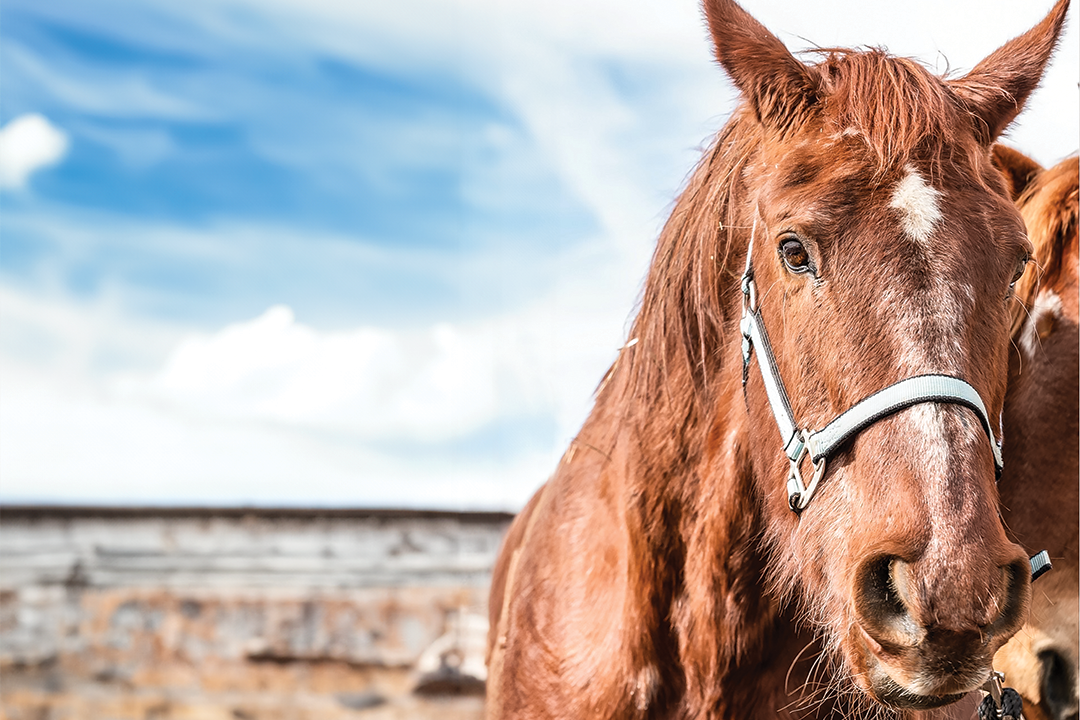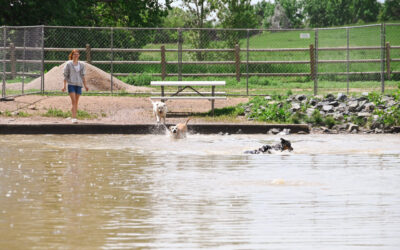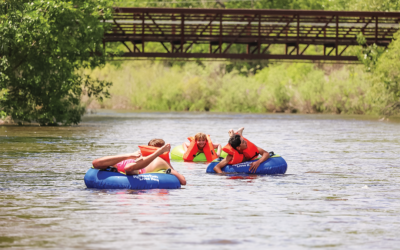When Thom Munholland was in his early teens and had his first job, he rescued a horse, Lackota, from going to auction. Lackota was bred as a show horse and never cut it as that, Munholland says, because he had physical limitations and wasn’t a big, pretty horse. Lackota wasn’t expected to live long, but he ended up living with Munholland for 31 years.
Munholland grew up in Fort Collins around horses, donkeys, mules and other farm animals. From childhood through his early 20s, he participated in horse shows and rodeos all around Colorado and even outside the state. The more he participated in horse shows, the more he thought about Lackota.
He didn’t like the way the animals were treated, and his love for horses became even stronger. His desire to compete started to wane.
“I love horses,” says Munholland, now 44. “Horses are great whether you can ride them or not. They just have a presence about them.”
He learned over the years, largely due to his relationship with Lackota, that the worth of an animal isn’t about what they can do. It’s about who they are.
He also learned that, while the slaughter of horses, donkeys and mules for meat hasn’t been legal in the U.S. since 2007, it’s still a $1 billion industry worldwide every year. In the U.S., horses deemed not useful are auctioned off and often sent to what Munholland refers to as kill lots, where there is little food and water and nothing in the way of shelter or medical care.
Munholland and his husband, Samuel, also 44, wanted to do something about it. So, in 2021, they co-founded the Friends of Lackota Animal Sanctuary, a Fort Collins nonprofit that takes in sick and infirm equines and gives them a place to live out their lives free of fear and neglect.
“We take in animals that have little hope,” Munholland says. “They’re extra sick, extra lame. Most of them have literally been on their death bed when they come to us. The ones that are the least adoptable come to us.”
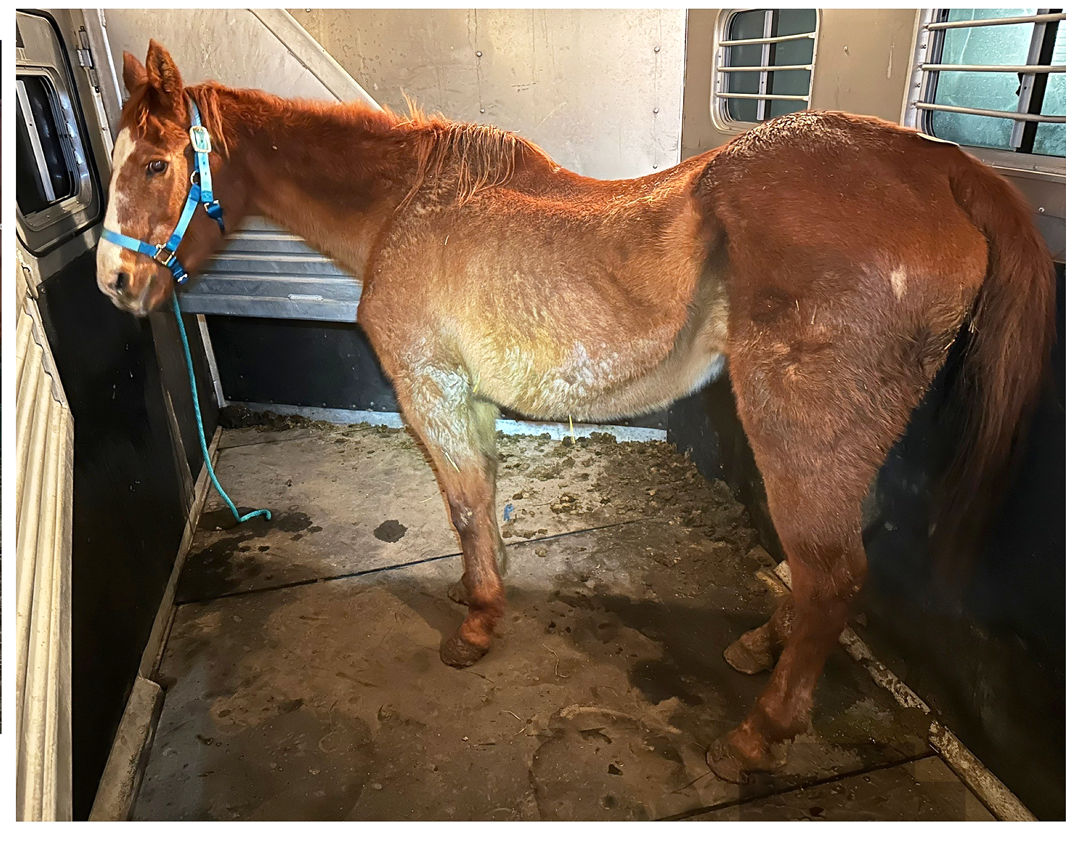
Helen, a rescue at Friends of Lackota, before receiving care.
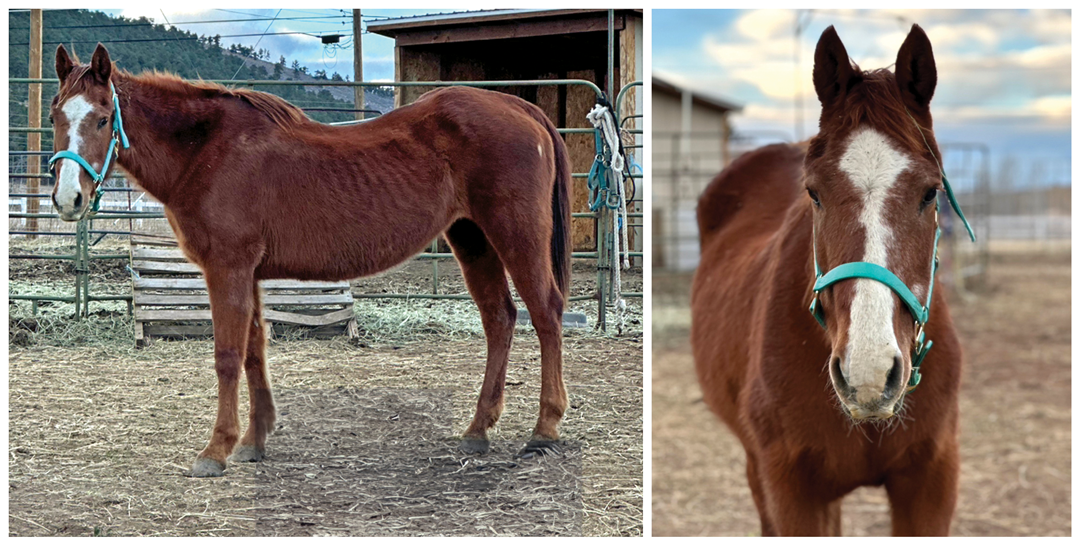
Helen, a rescue at Friends of Lackota, after receiving care.
A massive undertaking
As is the case with most nonprofits, the greatest challenges faced by Friends of Lackota are a lack of time and funding.
“We both have full-time jobs,” Munholland says. “It’s not easy, and we both lose a lot of sleep.”
The couple lives on the ranch where the rescue is located, so adding up the number of hours they spend on the animals is impossible, Munholland says. When they’re not working, they’re at the ranch with the animals.
The entire operation is volunteer driven, and no one takes a salary. Friends of Lackota currently serves about 80 animals, including 46 horses and donkeys. The group stays afloat by applying for grants, and they accept small donations here and there, Munholland says.
“It’s not unheard of for the board of directors to pitch in a good amount now and then, too,” Munholland says.
When the dust settles, however, financial responsibility falls on the couple. The rescue doesn’t pay for things like rent, tractor payments and truck payments—all of that is paid out of pocket.
Munholland says Friends of Lackota was able to secure a number of grants last year, but they’re typically one-offs and aren’t guaranteed the following year. Last year’s operating budget was estimated at $38,000, he says.
“However, because we have almost tripled in size (meaning the number of horses and donkeys rescued), we exceeded our budget by $58,309,” he says. “That left us in total expenses at $96,309, most of which we secured through grants.”
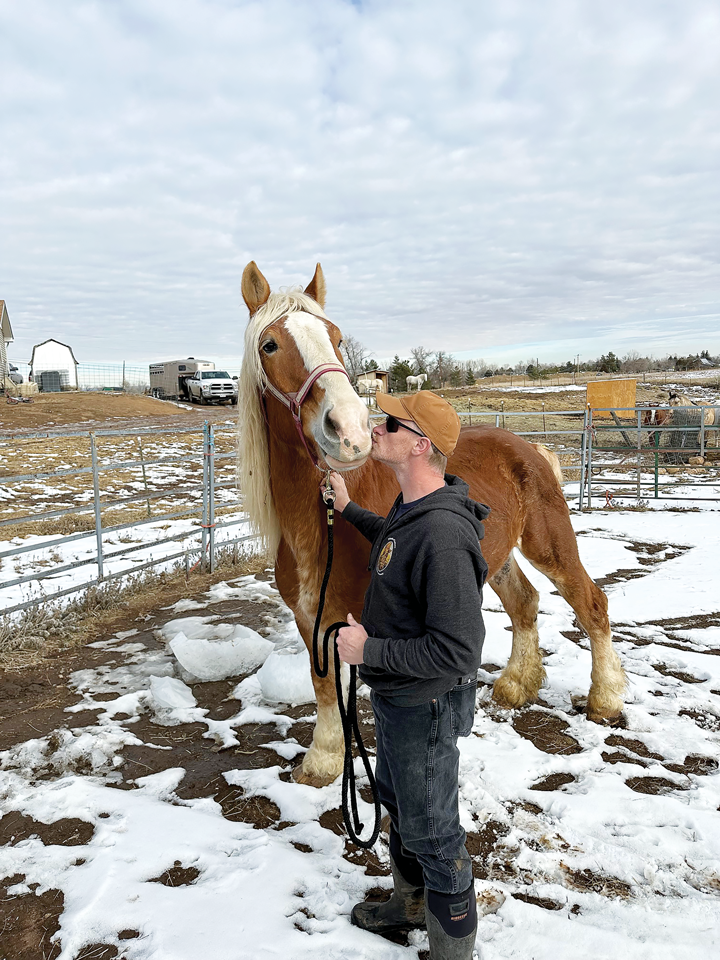
Samuel Munholland giving Major kisses.
Community support
With a setup like that, volunteers are a big help to keep everything running. The organization currently has three volunteers who come in regularly and three others who help out when they can.
Michelle and Tom Heath, who live in Fort Collins, learned about Friends of Lackota in April 2023 and decided they wanted to help. Neither has professional experience with farm animals, but they both knew they could spend a couple hours each week helping with whatever needed done.
“We help clean pens, and we spoil the animals with treats and brushing,” Michelle says. “We helped fix a shelter and helped them build a shelter. We help feed the animals. Any skillset we have, we give to them.”
One of those animals is a Belgian horse named Major, who weighs nearly a ton.
“Major just loves neck scratches,” Michelle says. “He always makes sure to position himself right where he likes to be scratched.”
Michelle says one of her favorite parts of working with the horses is seeing their personalities come through. When the couple brings out gloves and a bucket of tools, for example, some of the animals will gather around and pick gloves out of pockets and lift tools out of buckets just to see what’s going on. Michelle says she always gets a chuckle out of that.
She and Tom were drawn to Friends of Lackota by the work and the organization itself.
“They’re such good people,” Michelle says of the Munhollands. “They’re really down to earth. They’re willing to accept whatever help we can give.”
One local family is fostering three of the horses and providing the daily care for each. They know the animals are just there to live out the rest of their lives, Munholland says, and they’re perfectly OK with that. “They love them like they’re their own,” he says. He and Thom are always looking for new foster families who are interested in helping out.
Many of the animals they find at local auctions or in area kill lots are injured or sick, which can make for some expensive decisions. Fortunately, there’s a local veterinarian who donates her time to Friends of Lackota and usually only charges for medications. The vet, who asked to remain anonymous, has saved the organization thousands of dollars over the years.
When she’s not available, the group leans on Colorado State University veterinarians, but the college doesn’t offer discounts. Munholland estimates that Friends of Lackota spent around $20,000 on CSU vet costs last year.
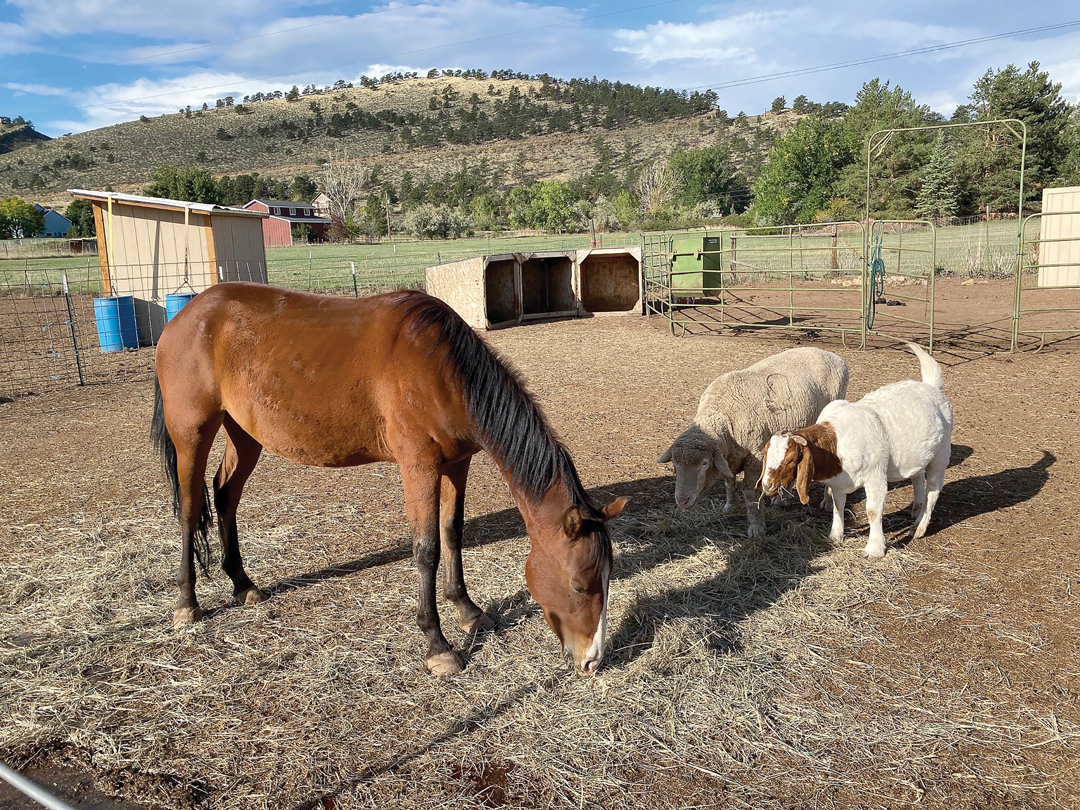
Friends having lunch.
Looking ahead
Friends of Lackota is a rescue and shelter, and although it’s rare, there’s always hope that their animals will get adopted out to a good home.
“If we can find them amazing homes where they’ll live forever, we’ll do so,” Munholland says. “But we’ve found that, with the ailments they have coming in, they don’t end up getting adopted out because it’ll cost quite a bit of money. When we bring in animals, it’s with the expectation that they’ll live on our land for the rest of their lives.”
The couple currently has 10 acres of land a mile outside of Fort Collins. They’ve elected not to share the exact location, thanks to an unfortunate experience where some folks dumped their animals at the sanctuary.
However, expansion is on the horizon, and they have their sights set on 35 acres near Nunn. Munholland says it’s the perfect spot because it’s not near any neighborhoods along the pasture lines and is close to Fort Collins. Nothing is set in stone yet, but they’re hoping to make the move in mid to late summer.
Though their days are long and the work is tough, they wouldn’t have it any other way. Munholland refers to the nonprofit as “our self-care.”
“Horses are so healing. I know the value of taking care of our mental health and the value of horses in that process,” Munholland says. “We come home to these animals and know we’re doing right by the world by not giving up on them when others have.”
The couple had to make the tough decision to put Lackota down last year. But both find comfort in knowing that his spirit lives on through the work they do with Friends of Lackota.
How to help
Friends of Lackota Animal Sanctuary is not open to the public, but the organization is always looking for volunteers to lend a hand or provide financial support. Donations can be made via Venmo (@friendsoflackota), Zelle and PayPal (friendsoflackota@gmail.com) or on the website at lackotasfriends.org. To donate feed or hay, write a check or learn about volunteer opportunities, email friendsoflackota@gmail.com.


